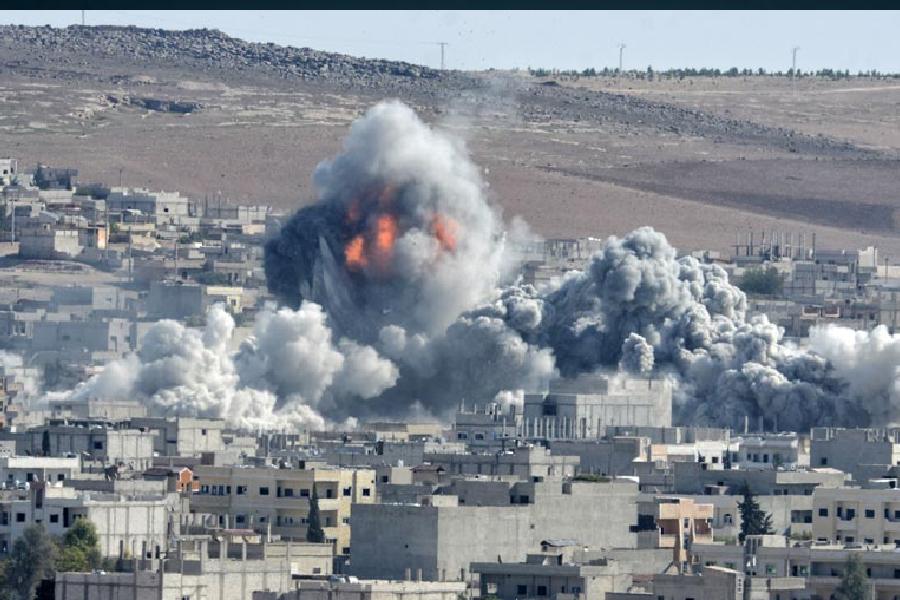The explosions woke Ali Al-Sunaidar and his children in the middle of the night — a familiar feeling after years of war.
He knew that the ancient mud-brick buildings in Yemen’s capital, Sanaa, could collapse under the pressure released by bombings, so he opened the windows in his home, letting in the winter air.
“We were terrified and anxious,” said Al-Sunaidar, a photojournalist in Sanaa, after dozens of US-led airstrikes hit Yemen on Friday local time, targeting the Houthi militia that controls much of the country’s north. “We’ve been living in tension, dread and horror for the last nine years.”
A day later, the US struck again, bombing a radar facility in Yemen, US officials said.
For nearly a decade, Yemen has been at war, pummelled by a Saudi-led military coalition supplied with US bombs in an effort to defeat the Houthis — a once-scrappy tribal militia backed by Iran that has evolved into a de facto government in northern Yemen. The coalition expected swift victory. Instead, hundreds of thousands of people have died from fighting, hunger and disease, and since the coalition pulled back several years ago, partly because of international pressure, the Houthis have only deepened their grip on power.
The Houthi militia in Yemen has propelled itself into an unlikely global spotlight in recent weeks as it has sown chaos in the Red Sea, attacking commercial ships and hobbling global trade. The Houthis have portrayed their campaign of missiles and drone attacks as a righteous battle to force Israel to end its siege on the Gaza Strip.
Now, with a US-led coalition bombing Houthi military installations in an attempt to halt the ship attacks, Yemenis say they feel a profound sense of déjà vu. “The Saudis tried that path in Yemen for nine years, and clearly it didn’t work,” said Farea Al-Muslimi, a Yemeni research fellow at Chatham House, a London-based think tank. “The strikes will not stop the Houthis from further attacks in the Red Sea — if anything, rather the opposite.”
The Houthis swept into Sanaa in 2014 and ousted the Yemeni government, espousing a religious ideologyinspired by a sect of Shia Islam.











